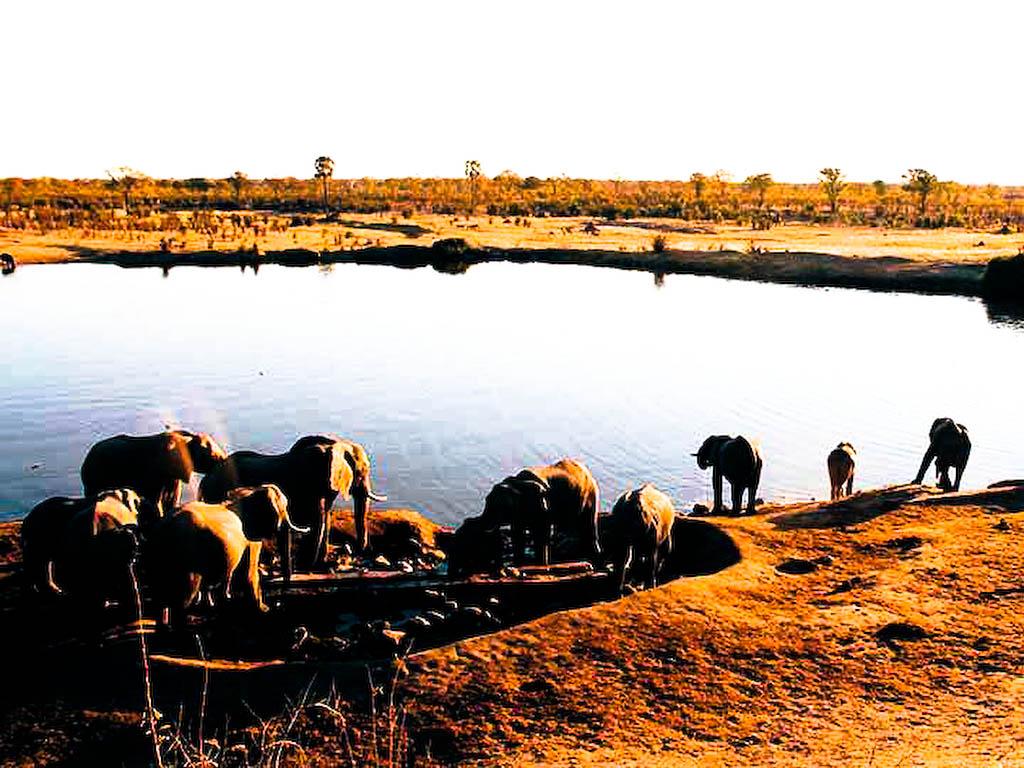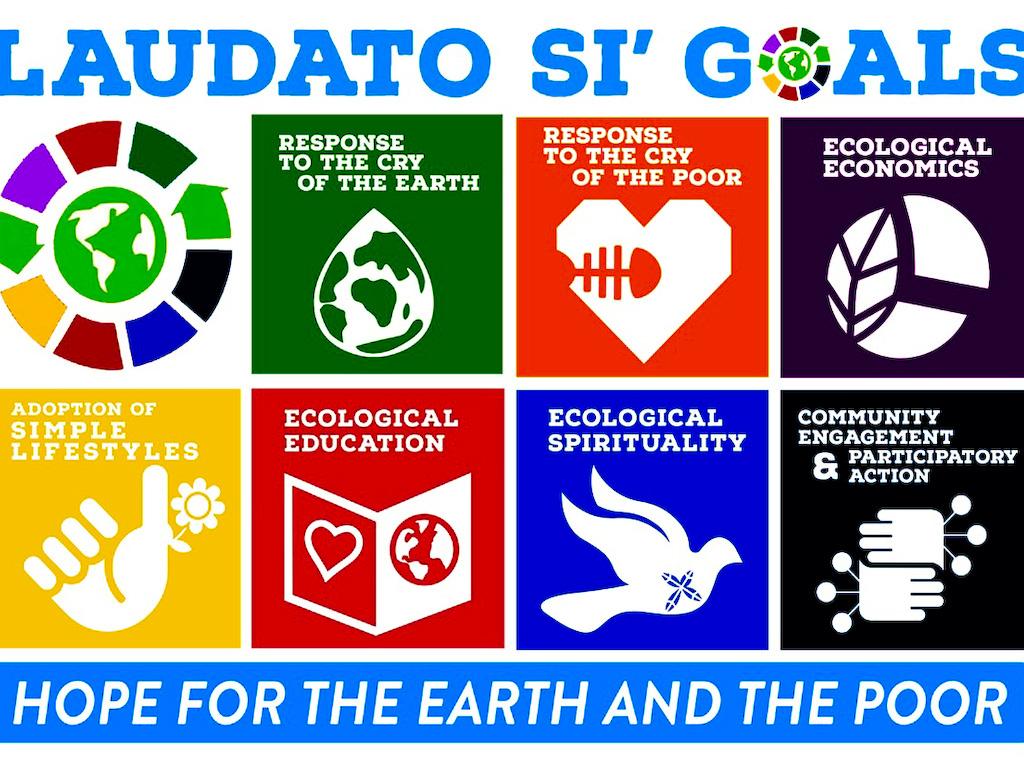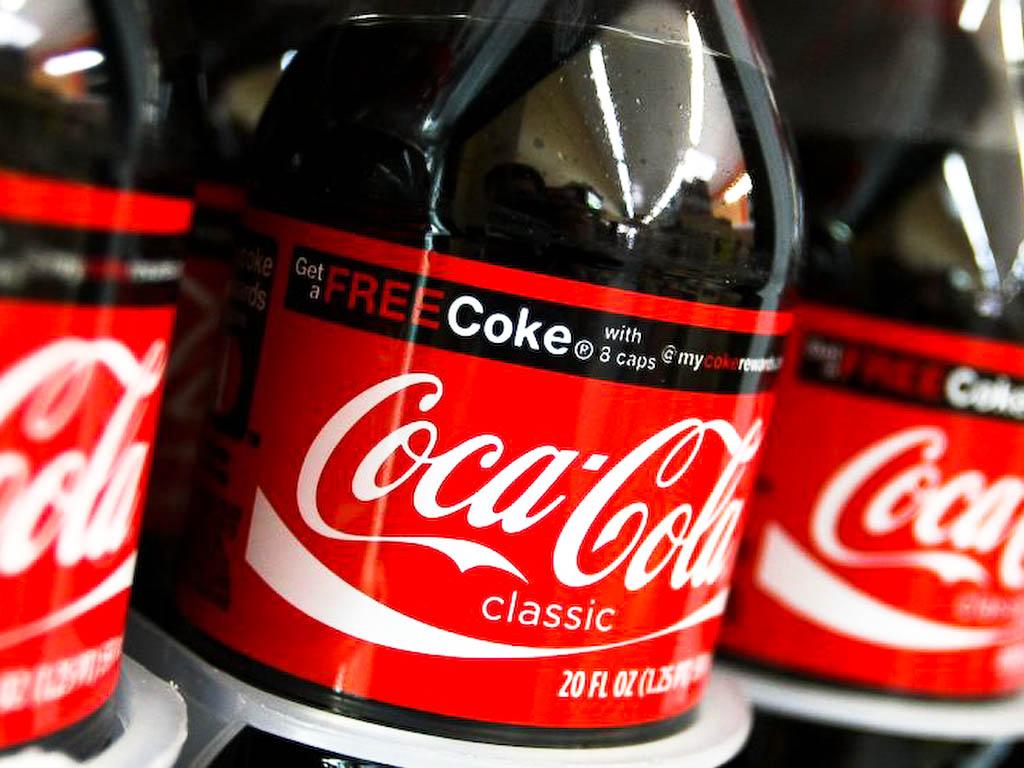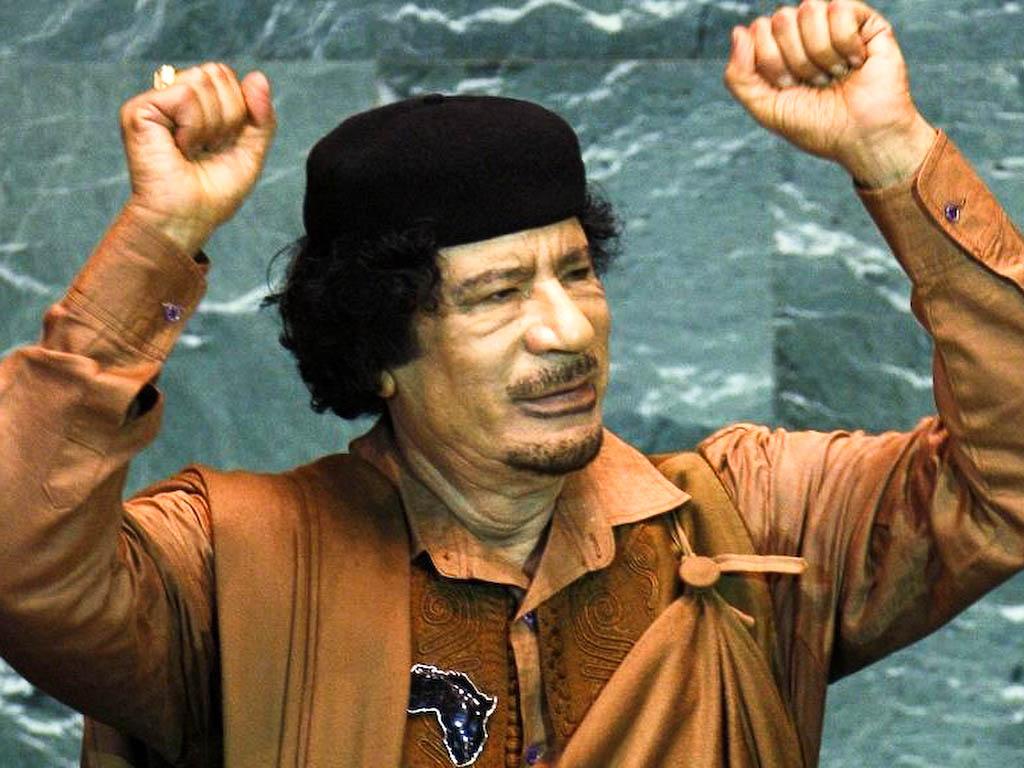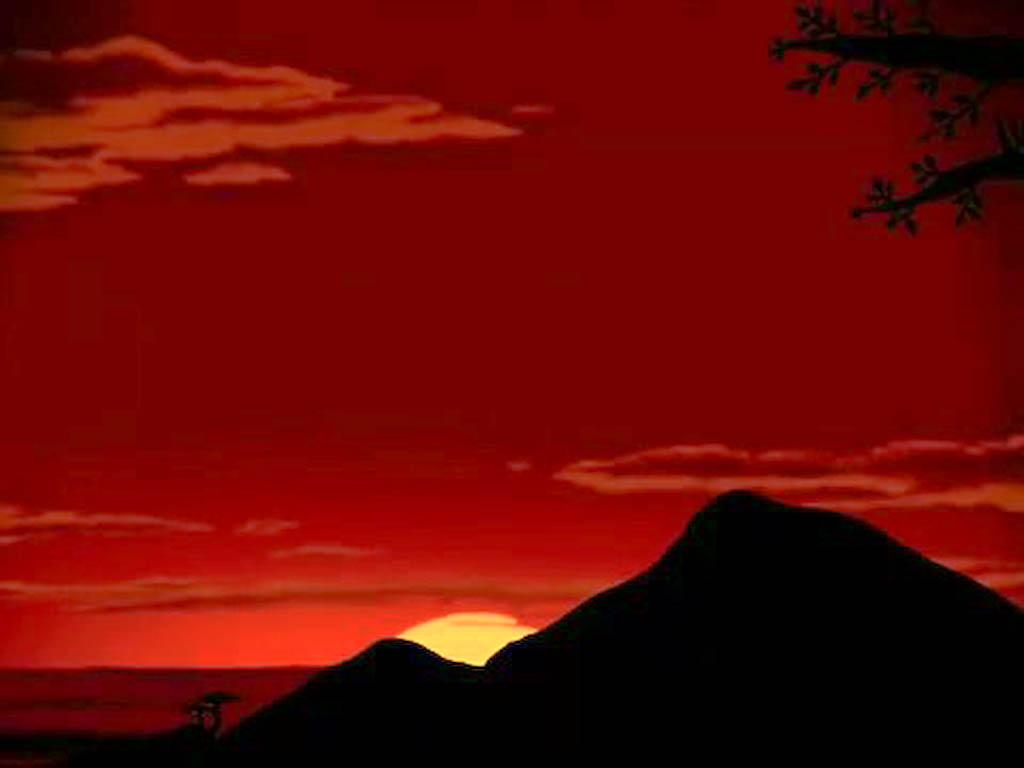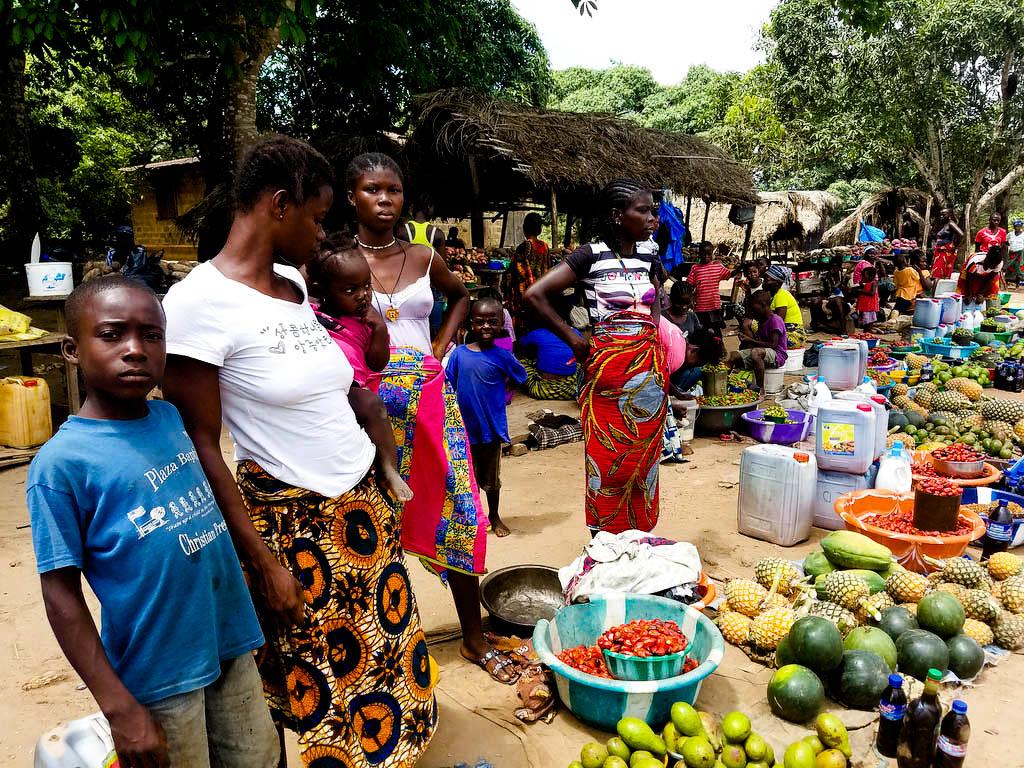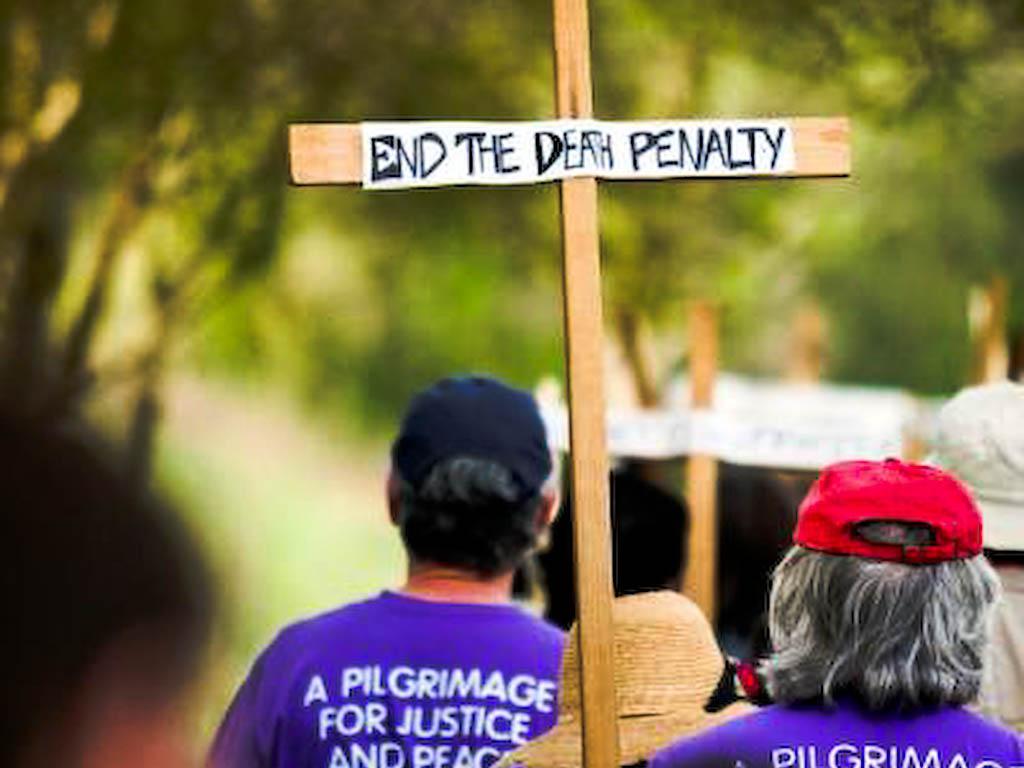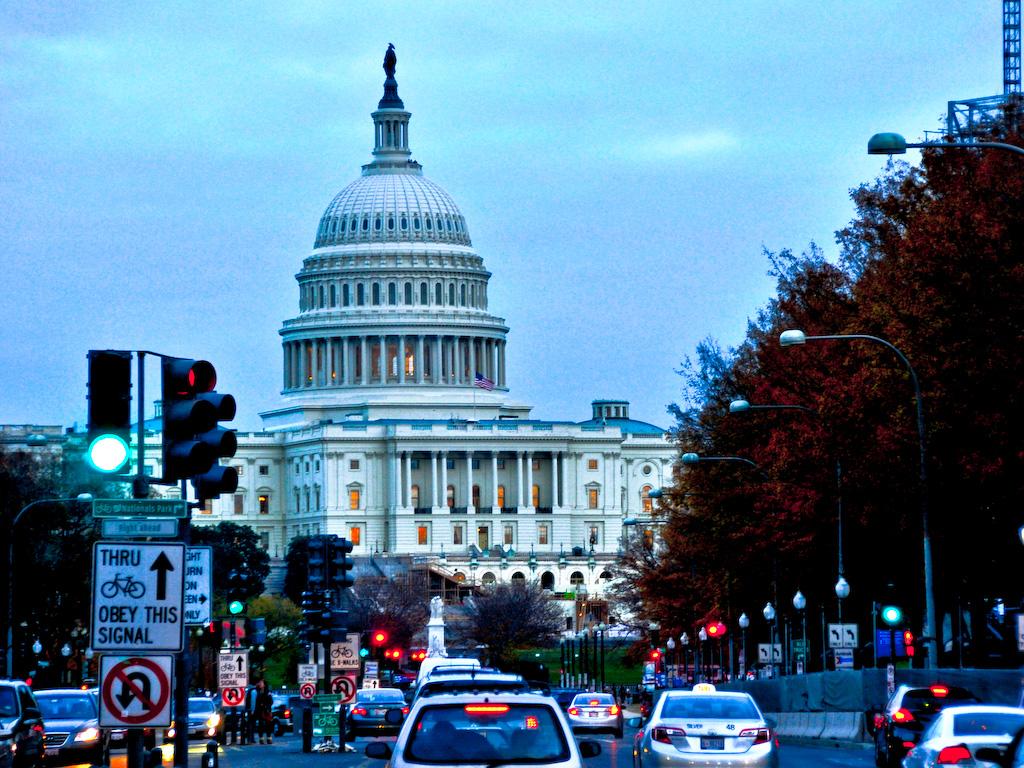Jpic News from John Paul Blog - Vol. 9 - No 1
|
THE NEWS OF THE MONTH
The culture of care to reverse the situationThe inverted image of swans reflected in the waters of a river recalls the message of Pope Francis for the 54th World Day of Peace: the year we leave, a 2020 full of difficulties, must awaken the commitment so that we make of 2021 a "revolution" that turns the situation upside down. Not only to show the swans in the right position, but to set humanity on the right path, on the path of hope, trust and serenity, health and well-being for all. Swans will then be truly symbols of the saving beauty. This Newsletter wishes everyone for 2021 a year full of beauty, health, confidence and serenity. “The year 2020 was marked by the massive Covid-19 health crisis, which became a global phenomenon cutting across boundaries, aggravating deeply interrelated crises like those of the climate, food, the economy and migration, and causing great suffering and hardship. I think especially of all those who lost family members or loved ones, and all who lost their jobs. I think too of physicians and nurses, pharmacists, researchers, volunteers, chaplains and the personnel of hospitals and healthcare centers. They have made, and are continuing to make, great sacrifices to be present to the sick, to alleviate their sufferings and to save their lives; indeed, many of them have died in the process. In paying tribute to them, I renew my appeal to political leaders and the private sector to spare no effort to ensure access to Covid-19 vaccines and to the essential technologies needed to care for the sick, the poor and those who are most vulnerable. “Sad to say, alongside all these testimonies of love and solidarity, we have also seen a surge in various forms of nationalism, racism and xenophobia, and wars and conflicts that bring only death and destruction in their wake. “These and other events that marked humanity’s path this past year have taught us how important it is to care for one another and for creation in our efforts to build a more fraternal society. That is why I have chosen as the title of this year’s Message, A Culture of Care as a Path to Peace. A culture of care as a way to combat the culture of indifference, waste and confrontation so prevalent in our time”. The Pope delves into the theme in a few pages, to arrive at a conclusion. “The culture of care thus calls for a common, supportive and inclusive commitment to protecting and promoting the dignity and good of all, a willingness to show care and compassion, to work for reconciliation and healing, and to advance mutual respect and acceptance. As such, it represents a privileged path to peace. ‘In many parts of the world, there is a need for paths of peace to heal open wounds. There is also a need for peacemakers, men and women prepared to work boldly and creatively to initiate processes of healing and renewed encounter’. “At a time like this, when the barque of humanity, tossed by the storm of the current crisis, struggles to advance towards a calmer and more serene horizon, the ‘rudder’ of human dignity and the ‘compass’ of fundamental social principles can enable us together to steer a sure course. As Christians, we should always look to Our Lady, Star of the Sea and Mother of Hope. May we work together to advance towards a new horizon of love and peace, of fraternity and solidarity, of mutual support and acceptance. May we never yield to the temptation to disregard others, especially those in greatest need, and to look the other way; instead, may we strive daily, in concrete and practical ways, ‘to form a community composed of brothers and sisters who accept and care for one another’”. Go on reading the entire Message of Pope Francis | |
|
THE GOOD NEWS
Zimbabwe’s ban of mining in national parks defeats Chinese companiesThe Zimbabwean government announced a ban on all mining activities in the country’s five national parks. The move came after campaigners took the government to court to prevent "ecological degradation" in parks. In court papers, the Zimbabwe Environmental Lawyers Association (ZELA) warned that the park would turn into a "site for drilling, land clearance, road building and geological surveys" if coal exploration went ahead. Conducting mining operations in country’s national parks has being sparking an emotional response through the Zimbabwe. The Bhejane Trust, which works with wildlife conservation authorities in Hwange and Safari Operators Associations, said two Chinese companies, AfrochineEnergy and the Zhongxin Coal Mining Group, had been awarded concessions to begin coal-mining operations in the Hwange National Park. It was therefore a surprise reversal. The Chinese embassy in Harare did not comment and once again committed an unforced public diplomacy error by not taking preemptive action to block these companies from breaking ground on protected lands — whether it was technically “legal” or not. The embassy would reply it lacks the authority to do anything, when Chinese diplomats can be very persuasive with their own stakeholders when it suits their interests. The government’s ban on mining in nature reserves is thereby an acceptance of the environmentalists’ concern who accused the two Chinese companies of conducting coal explorations in Hwange, the largest national park. The area, which is located in western Zimbabwe, is home to the largest herd of elephants in the country, but also large groups of lions, buffaloes, and numerous other species, including the endangered black rhino. The park is located not far from a forest where elephants are dying -at least 115 elephants have died in unclear circumstances-, 105 elephants of them between September and October supposedly to the shortage of food and water. Ideally, Hwange National Park should have a maximum of about 5 000 elephants and not the current one of more than 40,000. They are competing with other animals for scarce resources. A single elephant needs about 600 to 650 liters of water and an average of 400kg of food daily. The harsh drought since 1981 made food and water scarce for them in the park. Food and water shortages at parks is escalating also human-wildlife conflict as animals are now moving to communal areas in search of food. Moreover, a Chinese-owned company that supplies river sand for the Hwange thermal power station has been accused of causing massive land degradation in surrounding communities with fears of irreversible damage to the environment. Simon Ndlovu, a community leader from Gamba village on the banks of Lukosi River, said the company has left a trail of destruction in the past two years that they have been extracting sand. “They have destroyed the access road that connects us to the main roads and they have not bothered to rehabilitate the damaged sites,” Ndlovu said. Extracting sand involves digging deep down, posing risks for the community who use the river as a source of water for them and their livestock. They are also destroying the flora and fauna along the river. Hwange Rural District Council CEO Phindile Ncube reacted angrily to the complaints by community leaders, saying they are misinformed. “I don’t understand because when unit 7 and 8 [at the Hwange thermal power station] is complete, we are going to produce more and more electricity, so we don’t need distractions,” Ncube said. However, local people want the extraction to be done in a sustainable manner, and these companies need to give back to the community because Lukosi River is their major source of livelihood. The Information Minister Monica Mutsvangwa announced the ban with immediate effect saying the mining ban concerns riverbeds also. This decision would impact a number of small-scale Chinese and local gold miners reducing forwards the impact of mining in environmental system. A political action that can address the confusing Chinese presence in Zimbabwe, and gives hope of addressing also the destructive mining activities. Elephants drinking at a pond in Zimbabwe's Hwange National Park. © Christine Donaldson on Unsplashv | |
|
THE WORST NEWS
Greed has no boundariesHuman trafficking is defined as the recruitment, transportation, or transfer of humans using any form of threat for the purpose of exploitation. Exploitation could mean prostitution, forced labor or practices similar to slavery and servitude. In 2018, the government of Mexico was not meeting the minimum standards for eliminating human trafficking. Mexico is making strides in the number of prosecutions made and the amount of support given to victims. However, in 2018 the convictions were fewer than in previous years, fewer the victims identified, more limited the services provided to victims and the amount of shelters lower than the magnitude of the human trafficking industry. Financial intelligence unit (UIF) of Mexico has discovered that “some of the country’s most notorious cartels had branched out into sex trafficking,” especially those that face crisis in their business. “Gangs who steal oil and sell drugs try a lucrative new line of work trafficking people.” “When one possibility ends, they start to link up with other kinds of criminal activities,” according to a top official fighting money laundering, Santiago Nieto. “The Guanajuato-based Santa Rosa de Lima gang dedicated to tapping oil pipelines later turned to extortion and got involved in a table dancing bar staffed by trafficked women”, Nieto said. “The judges and public prosecutors have to realize how bad this issue is, trafficking at the end of the day is about human life,” he said. Mexico is an origin, transit and destination country for human trafficking, a global business estimated to be worth 0 billion a year. Often the most active in this global business are family-based U.S.-Mexico networks rather than the big cartels publicly known. A well-organized criminal activities web links bank transfers, trips and shell companies supporting the rackets. Insofar as human trafficking has become the third-largest illicit activity in Mexico, after drugs and guns. Go on reading | |
|
CELEBRATING!
Laudato Si’, goals of seven years planOn 24 May 2015 Pope Francis signed Laudato Si’, the watershed encyclical letter that called world’s attention to the increasingly precarious state of our common home. Five years later, the encyclical appears ever more relevant. The multiple “cracks in the planet that we inhabit” (LS, 163), from the melting ice caps in the Arctic to the raging wildfires in the Amazon, from extreme weather patterns around the world to unprecedented levels of loss of biodiversity that sustain the very fabric of life, are too evident and detrimental to be ignored any more. The fifth anniversary of the encyclical came in the midst of another watershed moment - a global pandemic - and Laudato Si's message is just as prophetic today as it was in 2015. The encyclical can indeed provide the moral and spiritual compass for the journey to create a more caring, fraternal, peaceful and sustainable world. Earlier this year, the Dicastery for Promoting Integral Human Development announced then a Special Laudato Si’ Anniversary Year from 24th May 2020 – 24th May 2021, hoping that this anniversary will indeed be a time of grace, a true Kairos – a sacred time – experience and “Jubilee” time for the Earth, and for humanity, and for all God’s creatures. While celebrating this Laudato Si’ Special Anniversary, a Laudato Si’ Multi-Year Action has been launched to make Communities around the World totally sustainable in the Spirit of the Integral Ecology of Laudato Si’. A plan calls for a public commitment from various institutions to begin the 7-year journey to total sustainability in the spirit of Laudato Si’. These institutions – without any prevention that other can join - are Families; Dioceses/Parishes; Schools; Universities/Colleges, Hospitals/Health Care Centers; Businesses/Agricultural Farms; and Religious Orders. Seven institutions of Civil Society as seven are the years plan and seven the Laudato Si’ Goals (LSGs). Here the 7 LSGs. 1-. Response to the Cry of the Earth. Greater use of clean renewable energy and reducing fossil fuels in order to achieve carbon neutrality, efforts to protect and promote biodiversity, guaranteeing access to clean water for all, etc. 2-. Response to the Cry of the Poor. Defense of human life from conception to death and all forms of life on Earth, with special attention to vulnerable groups such as indigenous communities, migrants, children at risk through slavery, etc. 3-. Ecological Economics. Sustainable production, fair-trade, ethical consumption, ethical investments, divestment from fossil fuels and any economic activity harmful to the planet and the people, investment in renewable energy, etc. 4-. Adoption of Simple Lifestyles. Sobriety in the use of resources and energy, avoid single-use plastic, adopt a more plant-based diet and reduce meat consumption, greater use of public transport and avoid polluting modes of transportation, etc. 5-. Ecological Education. Re-think and re-design educational curricula and educational institution reform in the spirit of integral ecology to create ecological awareness and action, promoting the ecological vocation of young people, teachers and leaders of education etc. 6-. Ecological Spirituality. Recover a religious vision of God’s creation, encourage greater contact with the natural world in a spirit of wonder, praise, joy and gratitude, promote creation-centered liturgical celebrations, develop ecological catechesis, prayer, retreats, formation, etc. 7-. Emphasis on Community involvement and participatory action to care for creation at the local, regional, national and international levels. Promote advocacy and people’s campaigns, encourage rootedness in local territory and neighborhood ecosystems, etc. Answering to this call, our Newsletter is committed to live and strengthen this seven years plan, presenting in the coming months one by one all the seven Laudato Si’ Goals. | |
|
TAKE ACTION NOW!
Coca-Cola, Pepsi and Nestlé top plastic polluters for third year in a rowThey have done “zero progress” on reducing plastic waste and Coca-Cola ranks No 1 for most littered products, says Break Free From Plastic in its annual audit, after Coca-Cola bottles were the most frequently found discarded on beaches, rivers, parks and other litter sites in 51 of 55 nations surveyed. This means Coca-Cola is increasing the destruction of nature with littered bottle from 37 countries, out of 51 surveyed last year. Coca-Cola is thus worse than PepsiCo and Nestlé combined: its branding was found on 13,834 pieces of plastic, with PepsiCo branding on 5,155 and Nestlé branding on 8,633. The 15,000 volunteers around the world who identify the plastic products this year collected 346,494 pieces of plastic waste, 63% of which was marked clearly with a consumer brand. NGO Tearfund found early this year Coca-Cola, PepsiCo, Nestlé and Unilever responsible for half a million tons of plastic pollution in six developing countries. Emma Priestland, Break Free from Plastic’s global campaign coordinator, said the only way to halt the growing global tide of plastic litter was to stop production, phase out single use and implement reuse systems and “Coca-Cola, PepsiCo, and Nestlé should be leading the way in finding real solutions to reinvent how they deliver their products,” she said. Coca-Cola announced it would not abandon plastic bottles, because they are popular with customers but it was working to address packaging waste. “We have a commitment to get every bottle back by 2030, so that none of it ends up as litter or in the oceans, and the plastic can be recycled into new bottles,” a spokesperson said. The company added it was to increase recycling infrastructure and collection, pledging more than m (£48m) since 2018, disputing the claim that it was making no progress. In the same way, Nestlé says the company was making “meaningful progress” in sustainable packaging, although it recognized more was needed, “We are intensifying our actions to make 100% of our packaging recyclable or reusable by 2025 and to reduce our use of virgin plastics by one-third in the same period.” Despite all these discharges, actually, up to 91% of all the plastic waste is not recycled and ended up being incinerated, polluting the natural environment, according to a 2017 study. So waiting Coca-Cola to address the issue by 2030 and Nestlé by 2015, let us take the helpful action by NOT buying their products in the meantime. See the source article Coca-Cola, Pepsi and Nestlé named top plastic polluters for third year in a row. See also American brands top list of world’s worst plastic polluters | |
|
KNOWING THE SDGs
Six key points about the UN before its 75th anniversary (Part 3)The second secretary general of the United Nations (UN), the Swedish, Dag Hammarskjöld, is credited with one of the best definitions of the organization that began 75 years ago in San Francisco: “It has been said that the United Nations was not created in order to bring us to heaven, but in order to save us from hell.” (Translated from Spanish by Alissa D’Vale). (See Part One 1-. Underestimated importance and 2-. Three founding principles. See Part 2 3-. Need to reform and 4-. Democratic deficit) 5-. The world’s scenario and the most difficult job In geopolitical terms, the best show in the world is the start of the debates at the United Nations of the General Assembly (UNGA). A date that does not usually disappoint when it comes to providing great moments for history. From Khrushchev’s shoe to the 4-hour and 29-minute speech by Fidel Castro, passing through the Arafat dilemma (olive branch or rifle) or the diabolical sulfur of President Hugo Chávez. Not forgetting the delirious intervention of Gaddafi in September 2009, before the UN General Assembly when he presented himself as “Leader of the revolution of the People’s and Socialist Libyan Arab Jamahiriya, President of the African Union and King of the African Kings.” During his speech, a very harsh one, he mistreated a copy of the United Nations Charter. The UNGA is the institution that represents the 193 member countries of the UN, all of them with the same weight. Its prerogatives include approving the organization’s budget and adopting global treaties. It can make recommendations, but its resolutions are not mandatory, unlike what is agreed by the Security Council. The ministerial appointment in September is known as the general debate. Days in which New York turns into a security nightmare and a monumental jam. Go on reading | |
|
KEEP HOPING
The Saving Power of BeautyIs it possible for the West to change the way we see and treat Africa’s countries? - it was asked to Economist Benny Dembitzer. Yes, he answered, we should change the way you approach and address them, trying to understand Africa, its challenges, growing poverty, malnutrition, the number of children born with low weight and who do not recover to live and comprehend that all have an origin. We look forwards to see the end of this pandemic, inspired by Pope Francis’ word, “no one can save themselves alone. It is only possible to save themselves together”. It could be wise maybe to start to think about Africa’s richness in different way. We could discover that Africa is not only poverty and bad governance, full of precious raw material so necessary for modern society: Africa is also, colors, animals, nature, dance, music and beauty. “Beauty will save the world”. The line comes from Dostoevsky’s novel, The Idiot, attributed to the main character, Prince Myskin. “The saving power of beauty in the prince’s life could not overcome his sickness, but nonetheless illumined his vision. What matters though it be only disease, an abnormal tension of the brain, if when I recall and analyze the moment, it seems to have been one of harmony and beauty in the highest degree—an instant of deepest sensation, overflowing with unbounded joy and rapture, ecstatic devotion, and completest life? In the midst of his suffering, he glimpsed, though in a paradoxical manner, the heart of reality. It was not a careless phrase but a prophecy (R. Jared Staudt). However when Dostoevsky wrote the phrase, Beauty will save the world, he was not referring to purely aesthetic beauty as we understand it today, but to the beauty of goodness. Thus, the sentence acquires all its meaning. The world will be saved when the beautiful goodness becomes a goal again. Pope John Paul II quoted the line in his Letter to Artists, under the heading “The Saving Power of Beauty”: “People of today and tomorrow need this enthusiasm [of wonder] if they are to meet and master the crucial challenges which stand before us. Thanks to this enthusiasm, humanity, every time it loses its way, will be able to lift itself up and set out again on the right path. In this sense it has been said with profound insight that ‘beauty will save the world’ (§16)”. Watching this a beautiful video, of light and shadow African ballet, let us put aside fear and doubts, self-interests and greed, and share what Africa can offer from the saving power of her beauty. Watch African ballet | |
|
WORTH THINKING ON
“Food will be a legitimate war weapon”“We are not helping Africa and Africans. It is a great self-deception of people with good intentions”. Economist Benny Dembitzer spent 35 years working for official and non-governmental organizations, which empowers him to maintain fierce criticism against dysfunctional governments and rivalry between international organizations. He has just published: The Famine Next Door: Africa is Burning, the North is Watching. Interview. (Translated from Spanish by Alissa D’Vale) Reading the beginning of your book, J'accuse (I accuse). Is the solution for Africa to be left alone, because of the damage perpetrated by the West from colonization to the present days? There is no simple solution. We live in a world so complex that even non-intervention – for example on the issue of climate change – will be worse. I make it clear that leaving Africa alone is not the solution. Instead, there should be a change to the way we approach Africa, avoid confrontation. Is it possible for the West to change the way we see and treat Africa’s countries? It is possible to change the way you approach them, the way you address them. I advocate a change in understanding: in trying to comprehend that the situation in Africa, its challenges, growing poverty, malnutrition, the number of children born with low weight and who do not recover to live... have an origin and they are perpetuated. That relationship won’t change in a year or two, but it can be done. What are the first steps? Make a very clear difference between emergency aid and long-term development because the two are often confused. What the International Red Cross does is wonderful, just like other organizations, but if you give food, you have to accept that people will not grow it, unless you tell them that you are going to buy their harvest or that you are going to help them develop their own food. If you keep giving them, you change the way they have always lived. Furthermore, a distinction must be made between the short-term, which is desperate, and the long-term aid, which must be approached differently. Doesn’t the existence of international organizations that seek to eradicate hunger help? The World Food Program (WFP) provides food, but it was not created to help the poor, but to get rid of excess American food. In my book The Famine Next Door: Africa is Burning, the North is Watching, I mentioned four reports in which it appears that in 1963, during the flight that took Eugene McCarthy along with the Secretary of State for Agriculture to Rome to represent the US Government at the annual meeting of FAO, the two were arguing about how to resolve the need to provide more food and to get rid of the US food surplus generated by the guaranteed prices to American farmers. They discussed it during the six-hour flight. Upon landing in Rome, they called President Kennedy and told him that they were going to propose the creation of an institution that would buy surplus food from countries such as the United States, Canada, Australia, among others, to give it to countries with a food deficit. And Kennedy gave his consent. Go on reading | |
|
RESOURCES
Catholic Social Teaching and the Death PenaltyRooted in both scripture and the rich tradition of our faith, Catholic Social Teaching (CST) is a guide for how to live as a people of justice and mercy. CST brings the teachings of Jesus and his call to discipleship to the larger societal conversation of social justice. CST has seven major themes: Dignity of the Human Person; Call to Family, Community, and Participation; Rights and Responsibilities; Preferential Option for and with People who are Poor; Dignity of Work and the Rights of Workers; Solidarity; Care for God's Creation. Regarding the death penalty, the first and foremost aspect of the Church’s teaching is the belief in the inherent dignity of the human person as created in the image and likeness of God. Our Catechism states (n° 2267), in a modern society where the death penalty is not needed to maintain public safety, punishment must “correspond to the concrete conditions of the common good and [be] more in conformity to the dignity of the human person.” The death penalty stands in violation of the dignity of the human person. The human person, made in the image and likeness of God, is the foundation of a moral vision for society and stands at the heart of the Church’s understanding of justice. “In our times a special obligation binds us to make ourselves the neighbor of every person without exception […] recalling the voice of the Lord, "As long as you did it for one of these the least of my brethren, you did it for me" (Matt. 25:40 / GS 27). The death penalty disregards this inherent dignity of the human person. We are called to be a people of life. As Catholics, we believe in a consistent ethic of life, from conception to natural death; the sanctity of the human person cannot be diminished. "Where life is involved, the service of charity must be profoundly consistent. It cannot tolerate bias and discrimination, for human life is sacred and inviolable at every stage and in every situation; it is an indivisible good. We need then to show care for all life and for the life of everyone” (Evangelium vitae, 87). The death penalty violates this consistent ethic and does not conform to our pro-life teaching. Go on reading | |
|
WITNESSING
A special advocacy actionInternational organisms during this pandemic are under scrutiny and surely for many and good reasons. However, even in the weed fields some good wheat can be harvest. The United Nations has provided many juridical tools and agreements among its member States that support a claim for social justice. The IMF (International Monetary Fund), for its part, can play a role in providing liquidity and supplementing member countries’ official reserves, preventing the spread of poverty in case of emergency such as during Covid19. It is the Special drawing rights (SDRs) created in 1969 to supplement a shortfall of preferred foreign exchange reserve assets, namely gold and U.S. dollars. It is also a tool for the governments to prevent sovereign risk. A nation is a sovereign entity. Any risk arising on chances of a government failing to make debt repayments or not honoring a loan agreement is a sovereign risk. IMF allocates SDRs (Special Drawing Rights) to countries; private parties can neither held nor use it. In August 2009, the SDRs in existence was around XDR 21.4 billion. During the global financial crisis of 2009, an additional XDR 182.6 billion was allocated to provide liquidity to the global economic system. By October 2014, the number of SDRs in existence was XDR 204 billion and insofar it is SDR 204.2 billion (equivalent to about US1 billion). The value of the SDR is based on a basket of five currencies - the U.S. dollar, the euro, the Chinese renminbi, the Japanese yen, and the British pound sterling. Before its creation, the international community had to face several restrictions in increasing world trade and the level of financial development, as gold and US dollars, which were the only means of trade, were in limited quantities. The IMF created SDR in order to address the issue. |

- Office P.O. Box 138 - Montclair NJ 07042 0138 US
- Please, share your suggestions, opinions, doubts and ideas writing to pezzijp@hotmail.com
- You can subscribe also by writing to pezzijp@hotmail.com
- For all back issues www.combonimissionaries.org - www.comboni.org
- Copyright © www.jpic-jp.org


